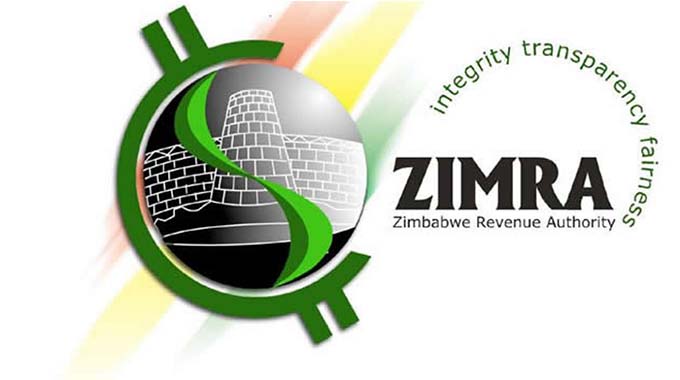
THE Zimbabwe Revenue Authority (ZIMRA) advises all taxpayers that all dissatisfied taxpayers have the right to object to assessments and certain decisions issued by the Commissioner in terms of Section 25 (1) to the Capital Gains Tax Act Chapter 23:01.
Rights of Taxpayers
1. All taxpayers not satisfied with an assessment or decision of the Commissioner have a right to object to assessments or decisions issued by the Commissioner.
2. Taxpayers who are not satisfied by the decision of the Commissioner to an objection have the right to appeal against the decision to Courts.
3. Taxpayers are entitled to a fair and just decision process.
4. Taxpayers have a right to explain and provide information in support of their grounds of objection.
5. Taxpayers have a right to appoint representatives to present their grounds of objection.
6. Taxpayers have a right to request for suspension of payment of tax pending decision to the objection.
Examples of decisions that taxpayers can object to:
Decisions of the Commissioner on:
i. Definition of gross capital amount where a person disposes of a specified asset otherwise than way of sale (Section 8(2) paragraph (b)),
Determination of fair market price where specified assets are acquired or Disposed of at more or less than the fair market price (Section 14)
ii. Definition of principal private residence (Section 21 Subsection 1 among others.
iii. Decision on rollover of CGT liability where receipts or accruals in respect of a damaged or destructed specified assets are expended on purchase or construction of a replacement or repairs.
Important Conditions to note when
lodging an objection
1. Any person dissatisfied with an assessment issued by the Commissioner may lodge an objection to the Commissioner General within 30 days after receipt of the notice of assessment or of the written notification of the decision or determination.
2. An objection must be done in writing to the Commissioner stating clearly the grounds of objection. A verbal objection cannot be accepted.
3. No objection shall be entertained by the Commissioner which is not delivered at his office or posted to him in sufficient time to reach him on or before the last day appointed for lodging objections, unless the taxpayer satisfies the Commissioner that reasonable grounds exist for delay in lodging his/her objection.
4. Late lodgement of an objection outside the prescribed timelines has to be accompanied by justification as condonation is not automatic.
5. The burden of proof that any amount is exempt or not liable to tax is placed on the taxpayer.
6. The obligation to settle any tax liability shall not be suspended because a taxpayer has lodged an objection or appeal unless the Commissioner decides so on request by the taxpayer.
The Commissioner’s Determination
On receipt of a notice of objection to an assessment or a decision, the Commissioner:
1. Makes a determination on the objection within three months from the date the assessment was issued or decision was made.
2. May reduce or alter the assessment, the decision or, as the case may be, increase or alter the reduction or may disallow the objection; and
3. Shall send the person upon whom the assessment has been made or to whom the decision has been conveyed or, as the case may be, to whom the reduction has been allowed, notice of the reduction, increase, alteration or disallowance.
4. Shall decide an objection determination within three months after receiving the notice of objection.
5. Where a determination is not received within three months after receiving the notice of objection, the objection is deemed to have been disallowed.
Why is the Objection Process Important to Taxpayers
1. The process provides dissatisfied taxpayers with a platform for a fair hearing regarding particular tax issues which they need recourse on.
2. The objection process can change tax burden position of the dissatisfied taxpayer.
Recourse if a taxpayer is not satisfied with the Commissioner’s determination.
a) Under Sections 65 of the Income Tax Act [Chapter 23:06], that apply also for Capital Gains Tax, taxpayers can appeal to the Special Court for Income Tax Appeals or the High Court if not agreeable to the determination by the Commissioner.
b) Every notice of appeal shall be in writing, shall state the court taxpayer wishes to appeal to, the High Court or to the Special Court and shall be lodged with the Commissioner within 21 days after receiving the determination to the objection.
c) The taxpayer can still appeal further to the Supreme Court if they are not satisfied with the Special Court for Income Tax Appeals or the High Court Special Court decision in terms of Section 66 of the Income Tax Act.
Covid-19 is real. Always remember to sanitise, wash your hands with water and soap. Stay safe
My Taxes, My Duties: Building my Zimbabwe!!
Disclaimer
This article was compiled by the Zimbabwe Revenue Authority for information purposes only. Zimra shall not accept responsibility for loss or damage arising from use of material in this article and no liability will attach to the Zimbabwe Revenue Authority.
To contact ZIMRA:
WhatsApp line: +263 782 729 862
Visit our website: www. zimra.co.zw
Follow us on Twitter: @Zimra_11
Like us on Facebook: www.facebook.com/ZIMRA.ZW
Send us an e-mail: [email protected]/[email protected]
Call us (Head Office): 0242 –758891/5; 790813; 790814; 781345; 751624; 752731 e-TIP: http://ecustoms.zimra.co.zw/etip
